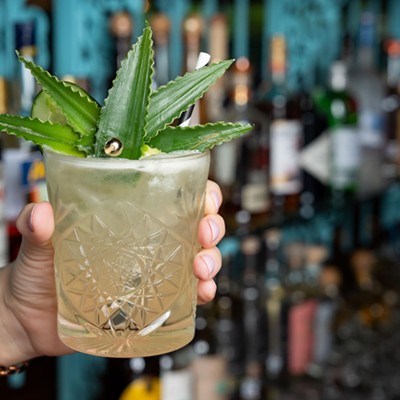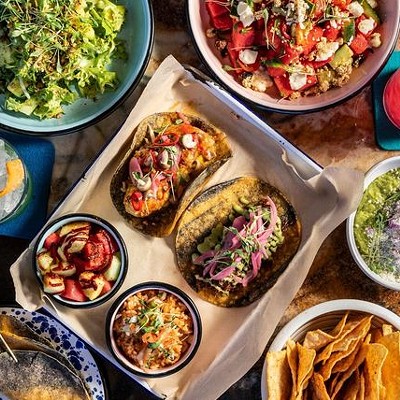Fat: That dirty little word that America has spent the last 30 years and millions of dollars trying to avoid. Where did that get us? Even fatter as a nation. Avoiding fat has not significantly impacted our collective weight gain, but it has obliterated our palates.
There is no denying that the fat is where the flavor is in any animal. But it is also not the cheapest means of obtaining fat today. Just as I mentioned in my post Foraging for Flavor, America likes things faster, bigger and cheaper. When scientists learned how to make margarine and extract oil from plants, the processed food craze took off like wildfire. Processed oils were inexpensive and extended the shelf life of baked and fried products, and they were soon incorporated into food products and prepared foods. Yum!
Chef Jennifer McLagan understands this history and the science around our misconceptions about fat and has written an excellent primer called Fat: An Appreciation of a Misunderstood Ingredient. She covers the most common types of animal fat that are easily accessible to the home cook: butter, pork, poultry, beef and lamb. She includes some over-the-top, decadent recipes and some very light and refreshing recipes, all of which use animal fats. (I include a few below.) This is an informative and enlightening read for not only the home cook but chefs, scientists and health nuts, as well.
The science section explains how fats develop, what they are made of and how they work in our bodies and in our food. It also describes how processed fat works and affects our bodies. Everyone is scared of heart disease and cancer, and if we can avoid them by cutting one thing out of our diet, why not do it? Nothing is that simple, and nothing about the science of the human body is that black and white.
McLagan covers LDL, HDL, DNA, lipids, essential fatty acids, Omega-3 and 6, fat soluble vitamins, Dr. Atkins, and everything in between to help the reader understand and reclaim fat. McLargan says, "These pages are larded with the history and culture of fat, exploring how fat has entered our language and literature, our economies large and small, and the fabric of our daily lives. Fat is indispensable and delicious. We should celebrate it, cook with it, eat it, and enjoy it without guilt."
The no-fat, low-fat, half-fat craze has been going on since 1970, but we are no healthier, thinner or happier for having lived through it.
No one is suggesting eating crazy amounts of fat. Eating crazy amounts of anything is never good, but the more unprocessed things in a diet, the better it has to be. Eat in moderation and use natural, healthy, unprocessed ingredients. Health is that simple.
"By providing recipes for everything from making your own butter, to baking pastry with leaf lard (which comes from around the pig's kidneys), to making dishes such as Bacon Mayonnaise, Duck Confit, and Traditional Christmas Pudding (with suet)", McLagan says, "she hopes her book will revitalize a very tasty, once crucial -- and apparently quite healthy -- food ingredient. Remember, we were eating animal fats for thousands and thousands of years. If it had been that bad for us, we probably would not have made it to this point in time."
Bacon Mayonnaise Yield about ½ cup
Combine the egg yolk, mustard and lemon juice in the small bowl of a food processor or in a blender and process to mix. Season with salt and pepper.
Have the bacon fat liquid, but not hot. With the machine running, gradually add the bacon fat until the mixture starts to stiffen and emulsify, about 2 minutes. Once it starts to emulsify, you can add the fat more quickly. If the mayonnaise is too thick, just blend in 1 teaspoon of boiling water to thin it. Taste and adjust the seasoning.
Pumpkin and Bacon Soup (Makes 3 quarts)
Remove the rind and any hard, dry skin from the bacon. Cut the bacon into 1/4-inch/6-mm dice.
Place a large saucepan over low heat, add the bacon pieces, and cook gently so they render their fat. When most of their fat is rendered, add the onion, celery, and sage, stirring to coat with the fat. Cook until the vegetables soften slightly, about 7 minutes.
Cut the squash into quarters and remove the seeds. Peel the squash and coarsely chop into smaller, even-sized pieces. Set aside.
Pour 1 cup of the water into the pan with the vegetables, increase the heat to high and, using a wooden spoon, deglaze the pan, scraping up the browned bits on the bottom. Add the remaining 7 cups water, the squash pieces, 1 tablespoon of salt, and some pepper. Bring the mixture to a boil, lower the heat, and simmer, covered, until the squash is very soft, 30 to 45 minutes. Remove the sage and let the soup cool slightly.
Purée the soup, in batches, in a blender and pour into a clean saucepan. Taste and adjust the seasoning, and reheat the soup to serve.
Buttery Pureed Potatoes Serves 6
Peel the potatoes and cut them into large chunks. Place them in a large saucepan, cover with cold water, and add the bay leaf and 1 teaspoon of coarse salt. Cover and bring to a boil over high heat. Uncover the pan and lower the heat to a gentle simmer. Continue cooking the potatoes until they are very soft but not falling apart, 15-20 minutes, depending on the potato and size of the chunk.
Drain the potatoes very well, remove the bay leaf, and puree them using the fine grill of a food mill. Return the potatoes to the saucepan and place over low heat. Using a wooden spoon, stir until the moisture from the potatoes evaporates and they begin to stick to the bottom of the pan. Reduce the heat to very low, beat in crème fraiche, and then gradually beat in the butter. The potatoes will become very soft and smooth. Taste and add fine sea salt, if necessary, then season with pepper.
If you are not serving the potatoes immediately, you can keep them warm in a water bath. Place a buttered heatproof bowl over a pan of barely simmering water. Spoon the puree into the bowl; dot the surface with butter, and cover. The potatoes will keep this way for 1 hour.
Follow Eating Our Words on Facebook and on Twitter @EatingOurWords





